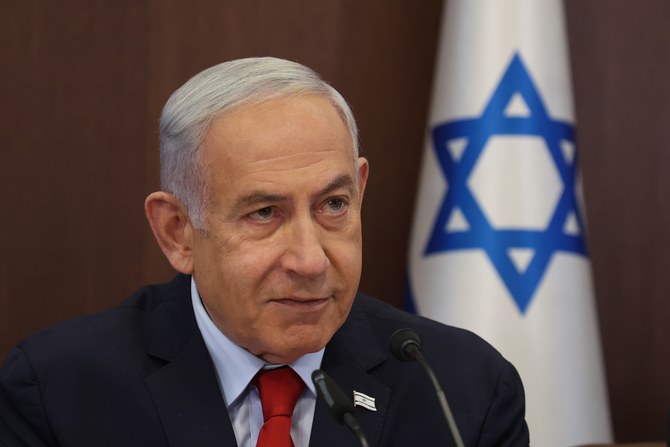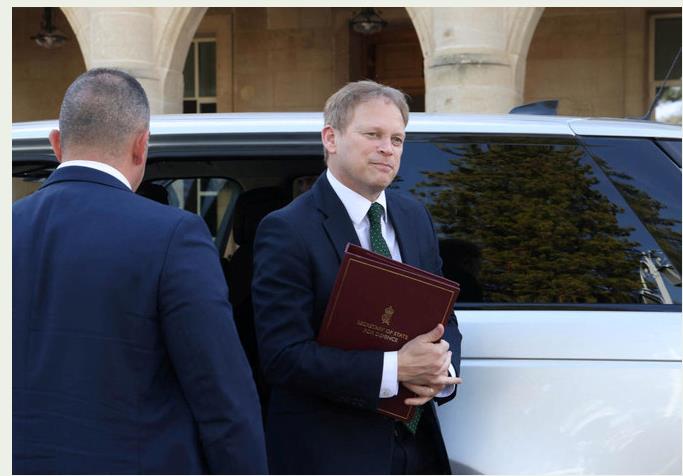
Benjamin Netanyahu’s election-eve pledge to annex all settlements and outposts could ultimately encompass most of the rural West Bank, leaving Palestinians confined to a few overcrowded cantons. Yet even this isn’t the worst-case scenario, because Netanyahu is cobbling together a coalition of extreme-right forces explicitly committed to eradicating Palestinians altogether. These factions were compared by leading Israeli and Jewish moderates to the Ku Klux Klan. One of them, Jewish Power, is an offshoot of the violent anti-Muslim movement Kach, designated terrorists by the US.
These modern-day fascists have been empowered by the ballot box to hold Israel to ransom for the next four years. In their hands they have Netanyahu’s “get out of jail free” card: Facing criminal charges in three corruption cases, he would require the support of entities such as Jewish Power to force through measures granting himself immunity. But their quid pro quo — the implementation of their “greater Israel” ethnic-cleansing agenda — could be ruinously expensive.
Even without this extreme-right millstone, Netanyahu’s apartheid policies have been distinguished by accelerated construction of thousands of illegal settler homes, forcibly evicting Arab families from East Jerusalem, and reducing the rights of non-Jewish citizens. His allies furthermore want to extend Israeli jurisdiction to Palestinian areas — or the concentration camp-like cantons that remain after Netanyahu has done his worst. One opposition supporter warned that Netanyahu’s promised annexations could trigger “perpetual war.” Similar concerns partly account for why so many US Jews loathe Netanyahu.
Is global democracy in crisis? Netanyahu is only one of many leaders with horrifying policy proposals enjoying recent electoral successes. In these polarized times people will seemingly vote for the devil if he makes bold enough promises. This global cabal of far-right leaders — including Brazil’s Jair Bolsonaro, Hungary’s Viktor Orban, Vladimir Putin and Donald Trump — captured and retained power, deploying divisive racist narratives that appeal to voters’ baser instincts. They denounce the media and demonize opponents, making bipartisan consensual politics impossible. Accepting Netanyahu’s annexation of the Golan Heights just days before the election represents extraordinary interference by Trump in Israel’s democracy, perhaps matched only by the substantial efforts Putin deployed in 2016 to win the vote for Trump.
Nevertheless, the removal of the presidents of Sudan and Algeria presidents is a reminder of the potential of popular action to depose hated and corrupt regimes, even though the military powers behind these regimes have tried to cling on by tossing figurehead leaders overboard. Omar Al-Bashir was initially replaced by his defense minister, Awad Ibn Auf, himself under sanctions for his role in atrocities in Darfur. Just a day later, continuing protests forced Auf to step aside in favor of a less problematic figure, Gen. Abdel Fattah Burhan. Similarly, Abdelaziz Bouteflika (rarely seen since being incapacitated by a stroke six years ago) was ousted by his top general, Ahmed Gaid Salah. Nevertheless, having braved so much, citizens are unlikely to be satisfied with minor cosmetic alterations within the same regime.
In the same way that Iran cannot claim to be a democracy just because it holds rigged elections, Israel is increasingly at odds with democratic values: There are detentions without trial, police brutality, imprisoning children, forced deportations of African migrants, and the accumulated injustices of occupation. Among his tactics for Arab vote suppression was Netanyahu’s distribution of 1,200 cameras to election observers at polling stations in Arab areas, contributing to a climate in which citizens were unwilling to show up. The criminal indictments against a sitting prime minister are likely to push Israel’s political system further toward breaking point.
It may seem impossible to believe that Israel’s leadership could move any further right — but let’s wait and see
Baria Alamuddin
Netanyahu and the far right have spent two decades taking a sledgehammer to Israel’s traditional political center ground with their fearmongering claims that compromise and peace initiatives open the door for “terrorism.” This inexorable lurch toward the extreme right has brought into the Knesset figures who in the 1990s were regarded as lunatic-fringe extremists. It may seem impossible to believe that Israel’s leadership could move any further right — but let’s wait and see.
With Trump’s actions (or lack of them) on Jerusalem and the Golan, and Netanyahu’s threats against the West Bank, Arab voices have been muted. The received wisdom is that there is political space for only one enemy — Iran. Yet a tough position on Palestine reinforces the Arab negotiating position elsewhere. There is no viable peace deal coming from Jared Kushner, whose terms of reference are dictated by Israeli hardliners. When Palestinians criticized the US administration, Trump contemptuously defunded vital refugee programs. If the Arab position is to be decisive on the world stage, such humiliations must be uncrossable red lines, just as King Faisal’s 1973 oil boycott stopped the world in its tracks and permanently strengthened the Arab global posture.
If Netanyahu and his deranged associates implement only a fraction of their apartheid electoral pledges, they will put Israel far beyond the mainstream of internationally acceptable behavior. Already, we have seen unprecedentedly strong criticism of Netanyahu by US Democrat 2020 presidential candidates. What one president can mindlessly declare with a tweet can be easily revoked by his successor. In a post-Trump era, Netanyahu may find himself at the helm of a rogue state, with few international friends to provide shelter from UN action and legal measures. Every arbitrary measure by Netanyahu against Arab identity, every act of theft throughout Jerusalem and Palestine, only reinforces collective memories of Arab ownership.
As we saw in Sudan and Algeria, decades of injustice merely strengthen the thirst for justice when people are steadfast and determined. The racism, the oppression, the corruption and the dispossessions in Palestine and elsewhere in the world will only make the taste of accumulated justice all the sweeter when we — or perhaps our grandchildren — finally get to enjoy it.
Baria Alamuddin is an award-winning journalist and broadcaster in the Middle East and the UK. She is editor of the Media Services Syndicate and has interviewed numerous heads of state












